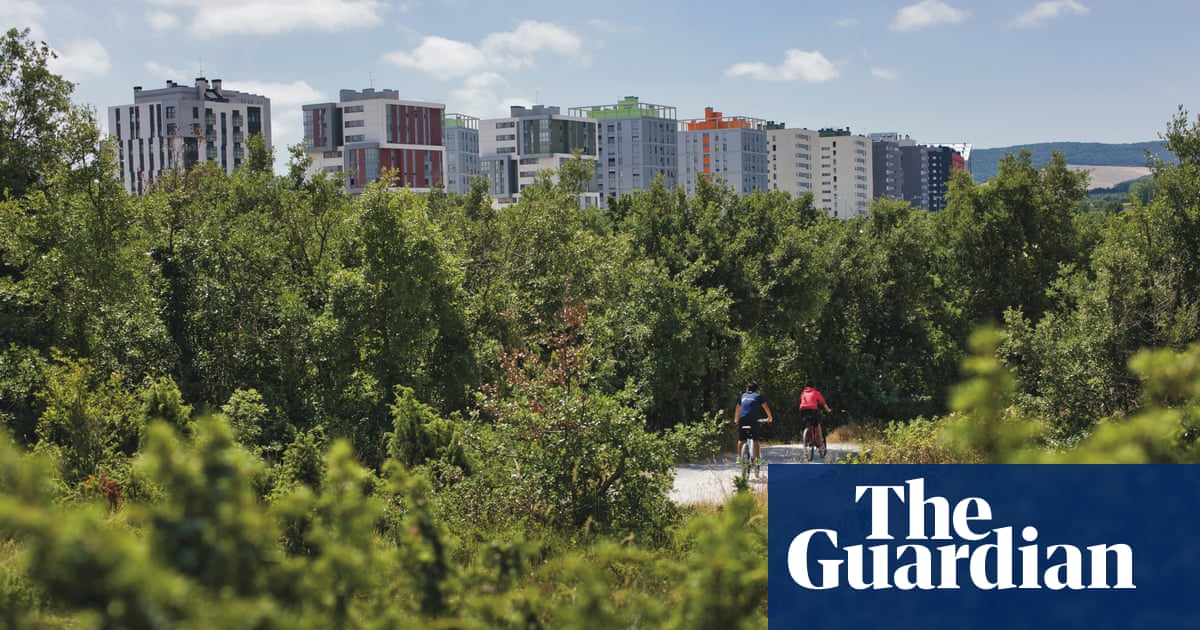
fter breakfast on a Friday morning, a small group of elderly people are engaging in gentle exercises – walking to one end of a walled compound and back. Some of them need the assistance of nurses or walkers, or both, to complete the journey.
“Usually, we do this a couple of times but it is a little bit cold today so we are going just once,” says Henry Ofori Mensah, administrator at Comfort For The Aged, a residential care home in Kasoa, a dormitory town west of Accra, Ghana’s capital.
At the turn of the century, a facility like this would have been hard to imagine in Ghana.
About 58% of Ghana’s population is under the age of 25. But improvements in public health and advances in medicine have ment that life expectancy has increased from 54 years in 1984 to 63 years in 2016.
According to the World Health Organization, 12% of Ghana’s population could be over the age of 60 by 2050 – up from 7% in 2010. These demographic changes coupled with rapid urbanisation (more than half of Ghana’s population now live in cities) and global migration is changing the way families care for older people.
Traditionally, elderly relatives stayed at home to help raise grandchildren and, as they aged, they were in turn cared for by those younger family members.
But Ghana, now a middle-income country, has an expanding middle class. An increase in women’s education means family sizes have shrunk substantially. The total fertility rate in Ghana has almost halved from 6.4 children per woman in 1988 to 3.9 children per woman (3.3 children for an urban woman) in 2017.
The pace of urban life, the demands of education and work means that many families are struggling to care for their elderly relatives.
“Grandma will wake up to an empty house, has, maybe, the TV for company … and because of traffic, [the rest of the family] come home late at night. That is when she is trying to talk to them but they are tired,” says Dr Esi Ansah, founder of the Association of Ghana’s Elders (Age).
“So there is a lot of benign neglect; a lot of seniors are around people but they are alone and lonely. The state assumes the family will take care of people but families have changed, family structures have changed,” says Ansah.
Chronic loneliness can precipitate depression and, “once depression sets in, so many other things follow,” says Dr Akye Essuman, director of Ghana’s first geriatric medicine fellowship. “People with hypertension can get out of control; if they have diabetes that can also get out of control.”
Private care homes are slowly but steadily being introduced in the hope of revolutionising how this conservative society on the cusp of tradition and modernity cares for its senior citizens. Already, there are three care homes in operation and two more are under construction around Accra.
Founded by Judith Comfort Asomani in 2016, Comfort For The Aged is one of these. During her time working as a nurse, Asomani found that many elderly patients did not want to go home after being discharged from hospital. She recalls people telling her, “I want to stay here a little because if I go home there is nobody there. I am always lonely.”
“For the first year, because it wasn’t known in Ghana, nobody was coming,” says Asomani. It was only after the care home switched their adverts from a local language radio station to an English language station popular with educated professionals that the business started to look up.
Today, there are seven residents aged between 70 and 89. The home can accommodate up to 10 people, says Mensah. Fees are on average around $250 (£202) a month depending on the type of care residents need. Apart from hypertension, some of the residents have Alzheimer’s or Parkinson’s disease, or are recovering from strokes.
The home has a structured daily routine, with nurses on hand to help with medication, hospital visits and other assisted living services such as grooming. Family visits usually happen at the weekend and there are occasional excursions.
“We had one client who had been alone in the house for a long time and in the end, the woman couldn’t talk. But when she came here, she started talking because we were always engaging [with] her,” says Asomani. “We give them total nursing care. When you come here, you stay as if you are in your house.”
During the three-week coronavirus lockdown of Ghana’s two largest metropolitan areas, staff stayed at the residential home and visitors were banned to prevent the virus from spreading into the home, a restriction that remains in place.
Benjamin Ocansey, an electronics technician in Accra, moved his 89-year-old mother from a village in Ghana’s central region to the care home six months ago because of her mobility issues. “In the rural area, the management of such conditions is next to nothing [but in the care home], she is going to get all those services and the management will be better than when she is on her own in the family home,” he said.
However, the main challenge is confronting societal perceptions about care homes. “[They are] culturally perceived as a foreign or western concept, which is alien to the Ghanaian culture,” says Dr Delali Adjoa Dovie of the Centre for Ageing Studies at the University of Ghana.
One thing nearly all of the residents have in common is that they have previously lived, or their children currently live, in the west.
Initially, Ocansey’s five younger siblings were not happy about their mother’s move to the home. “They had no knowledge of how the care system worked so they thought that I was going to dump her somewhere and forget about her,” he says.
But after visiting the home, there was a change of mind and some siblings have begun contributing to the monthly costs.
There are no government-run care homes for older people and the cost of private care homes puts them out of reach for many Ghanaians struggling to look after ageing parents. A national ageing policy drafted in 2010 is “still sitting on ice”, says Ansah.
Essuman believes it is also important to develop alternative care structures, such as daycare centres and home care services so that older adults can stay in their own homes to receive care for as long as possible.
“We need to look at what is culturally acceptable and what is also medically prudent and see where we can marry the two.”












